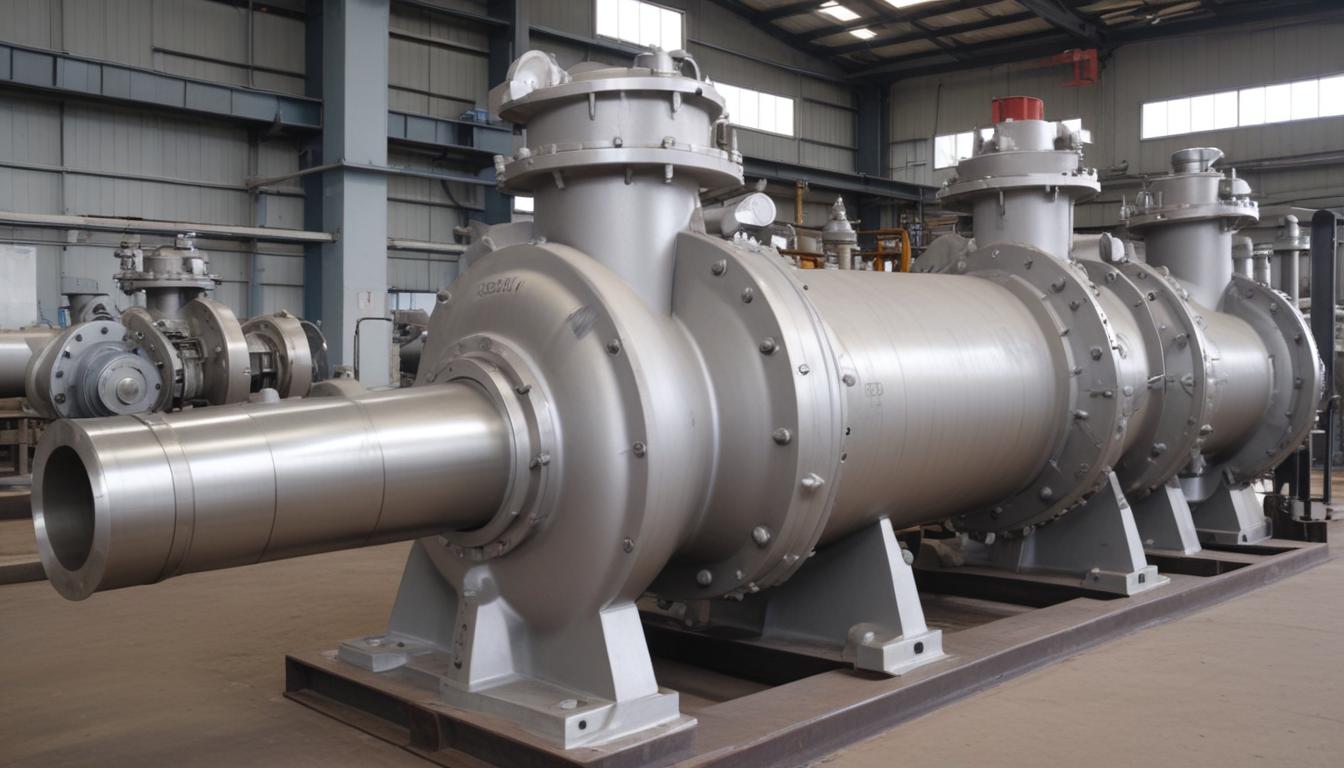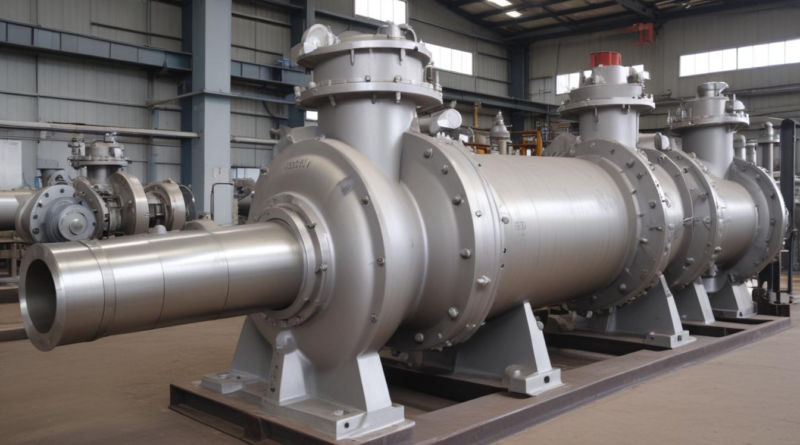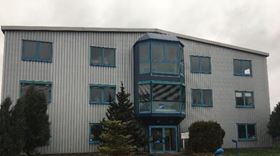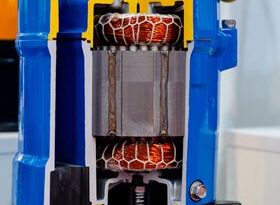the benefits of using stainless steel in pump construction
Stainless steel pumps offer exceptional corrosion resistance, making them ideal for environments where exposure to corrosive substances is a concern. The inherent properties of stainless steel, such as the presence of chromium, form a passive layer of chromium oxide on the surface, which protects the material from various corrosive agents. This resistance extends the life of the pump, reducing the need for frequent replacements and maintenance.
Key factors contributing to the corrosion resistance of stainless steel in pump construction include:
- High Chromium Content: Enhances the formation of the protective oxide layer.
- Alloy Composition: Elements like nickel and molybdenum improve resistance to specific corrosive environments.
- Surface Finish: Smooth finishes minimize areas where corrosive substances can accumulate.
Additionally, stainless steel pumps are resistant to a wide range of corrosive environments, including:
| Corrosive Agent | Resistance Level |
|---|---|
| Acids | High |
| Alkalines | High |
| Saline Solutions | Excellent |
| Chlorides | Very High |
The superior corrosion resistance of stainless steel not only enhances the reliability and performance of pumps but also contributes to the overall cost-effectiveness by minimizing downtime and extending the operational lifespan. These benefits make stainless steel a preferred material in the construction of pumps for industries such as chemical processing, marine applications, and water treatment facilities.
durability and longevity
Stainless steel pumps are renowned for their exceptional durability and longevity, making them a reliable choice for various industrial applications. The robust nature of stainless steel ensures that these pumps can withstand demanding operating conditions, including high pressures, extreme temperatures, and continuous usage without significant degradation.
Several factors contribute to the outstanding durability of stainless steel pumps:
- High Tensile Strength: Stainless steel possesses superior tensile strength, allowing pumps to handle heavy loads and resist deformation under stress.
- Resistance to Wear and Tear: The hardness of stainless steel minimizes surface wear, extending the pump’s operational life even in abrasive environments.
- Temperature Tolerance: These pumps maintain their structural integrity and performance across a wide temperature range, making them suitable for both hot and cold applications.
- Fatigue Resistance: Stainless steel’s ability to withstand cyclic loading without cracking ensures consistent performance over time.
The longevity of stainless steel pumps is further enhanced by their ability to resist various forms of degradation, including:
| Type of Degradation | Resistance Level |
|---|---|
| Corrosion | Excellent |
| Mechanical Wear | High |
| Thermal Fatigue | Very High |
| Chemical Exposure | Exceptional |
The combination of these resilient properties not only ensures the extended service life of stainless steel pumps but also reduces the frequency of replacements and repairs. This durability translates into significant cost savings and uninterrupted operations for businesses, enhancing overall productivity and efficiency.
Moreover, the thoughtful construction of stainless steel pumps incorporates design elements that further promote longevity. Features such as seamless welds, precision-engineered components, and balanced assemblies minimize stress concentrations and prevent premature failures. As a result, stainless steel pumps consistently deliver reliable performance, even in the most challenging industrial settings.
In summary, the durability and longevity of stainless steel pumps are key benefits that make them a preferred choice in pump construction. Their ability to endure harsh conditions, coupled with minimal maintenance requirements, ensures sustained operational excellence and a favorable return on investment.
ease of maintenance
Stainless steel pumps are designed with maintenance simplicity in mind, offering significant advantages that contribute to their overall reliability and efficiency. The inherent characteristics of stainless steel facilitate straightforward upkeep, reducing downtime and operational costs.
One of the primary benefits is the non-porous surface of stainless steel, which prevents the accumulation of debris and contaminants. This feature minimizes the frequency and complexity of cleaning procedures, ensuring that the pump operates smoothly with minimal intervention. Additionally, the smooth finish of stainless steel components reduces the likelihood of biofouling, which is a common issue in many industrial applications.
Key aspects that enhance the ease of maintenance for stainless steel pumps include:
- Modular Design: Many stainless steel pumps feature a modular construction, allowing for easy disassembly and replacement of individual parts without the need for specialized tools or extensive downtime.
- Accessible Components: Strategic placement of critical components such as bearings, seals, and impellers ensures that routine inspections and maintenance tasks can be performed quickly and efficiently.
- Corrosion Resistance: As previously discussed, the excellent corrosion resistance of stainless steel reduces the wear and tear on pump components, leading to less frequent maintenance requirements.
- Standardization: The use of standardized parts and fittings in stainless steel pump construction simplifies the sourcing of replacement parts and ensures compatibility across different models and applications.
Moreover, the use of stainless steel in pump construction enhances lubrication practices. The material’s compatibility with a wide range of lubricants ensures that moving parts remain properly lubricated, thereby reducing friction and wear. This compatibility not only prolongs the life of the pump but also streamlines maintenance routines by allowing for the use of readily available lubrication options.
A table summarizing maintenance benefits is presented below:
| Maintenance Aspect | Benefit |
|---|---|
| Cleaning | Easy removal of contaminants due to non-porous surfaces |
| Component Replacement | Modular design allows for quick and simple part swaps |
| Inspection | Accessible components facilitate routine checks and preventive maintenance |
| Lubrication | Compatibility with various lubricants reduces maintenance complexity |
The minimal maintenance requirements of stainless steel pumps translate into substantial cost savings over the pump’s lifecycle. Reduced need for specialized maintenance personnel and fewer unplanned downtimes enhance operational efficiency and productivity. Furthermore, the longevity of stainless steel components means that maintenance intervals can be extended, allowing businesses to allocate resources more effectively.
Another advantage is the resistance to scaling and deposition. In many applications, pumps are exposed to fluids that can cause scaling or the deposition of solids. Stainless steel’s surface properties inhibit the adherence of such materials, ensuring that the pump maintains optimal performance without frequent descaling or cleaning efforts.
In conclusion, the ease of maintenance associated with stainless steel pumps is a significant benefit that enhances their suitability for a wide range of applications. The thoughtful construction and material properties of stainless steel not only simplify maintenance tasks but also contribute to the pump’s overall durability and cost-effectiveness, making them a preferred choice in various industrial settings.
cost-effectiveness
 The utilization of stainless steel in pump construction offers significant cost-effectiveness, making it a financially prudent choice for many industries. Although the initial investment in stainless steel pumps may be higher compared to those made from other materials, the long-term economic benefits far outweigh the upfront costs.
The utilization of stainless steel in pump construction offers significant cost-effectiveness, making it a financially prudent choice for many industries. Although the initial investment in stainless steel pumps may be higher compared to those made from other materials, the long-term economic benefits far outweigh the upfront costs.
One of the primary contributors to the cost-effectiveness of stainless steel pumps is their extended lifespan. Due to their superior durability and corrosion resistance, these pumps require fewer replacements and experience less wear over time. This longevity reduces the frequency of capital expenditures and minimizes the disruptions associated with pump failures or replacements.
Additionally, the low maintenance requirements of stainless steel pumps translate into substantial savings. The ease of maintenance means that fewer resources are devoted to upkeep, and maintenance can often be performed without the need for specialized labor or costly downtime. This efficiency not only lowers operational costs but also enhances overall productivity.
Energy efficiency is another factor contributing to the cost-effectiveness of stainless steel pumps. The precise engineering and smooth surfaces of stainless steel components reduce friction and energy loss, resulting in lower energy consumption during operation. Over the lifespan of the pump, these energy savings can accumulate to significant amounts, further enhancing the economic advantages.
Furthermore, stainless steel pumps offer reduced downtime, as their reliability ensures continuous operation and minimizes the need for unexpected repairs or replacements. This reliability is critical in industries where pump performance is essential to operations, as it helps maintain consistent production levels and avoids the costly consequences of downtime.
Key aspects contributing to the cost-effectiveness of stainless steel pumps include:
- Extended Lifespan: Reduced need for frequent replacements lowers long-term capital costs.
- Lower Maintenance Costs: Minimal maintenance requirements decrease operational expenses.
- Energy Efficiency: Enhanced energy performance leads to significant savings on energy bills.
- Reliability: High reliability minimizes downtime and avoids associated productivity losses.
A detailed overview of cost-related benefits is outlined below:
| Cost Factor | Benefit |
|---|---|
| Initial Investment | Higher upfront cost is offset by long-term savings through durability and efficiency |
| Maintenance | Lower maintenance costs due to ease of upkeep and corrosion resistance |
| Energy Consumption | Enhanced energy efficiency reduces operational costs |
| Replacement Frequency | Extended lifespan decreases the need for frequent replacements |
| Downtime | Increased reliability minimizes operational disruptions and associated costs |
The combination of these factors results in a lower total cost of ownership for stainless steel pumps. Businesses benefit from reduced operational expenses, fewer capital investments in replacements, and sustained productivity levels. This comprehensive cost-effectiveness makes stainless steel pumps an advantageous choice for organizations seeking to optimize their financial performance while ensuring reliable and efficient pump operations.
suitability for various applications
Stainless steel pumps exhibit remarkable versatility, making them suitable for a wide array of applications across various industries. Their inherent properties, combined with thoughtful construction, allow these pumps to perform reliably in diverse environments, addressing specific operational requirements and challenges.
Key industries and applications where stainless steel pumps excel include:
- Chemical Processing: The excellent corrosion resistance of stainless steel pumps makes them ideal for handling aggressive chemicals and acids commonly used in chemical manufacturing.
- Food and Beverage: Compliance with hygiene standards is crucial in this sector. Stainless steel’s non-porous surface ensures easy cleaning and prevents contamination, making these pumps suitable for processing and conveying food products.
- Pharmaceuticals: Similar to the food and beverage industry, the pharmaceutical sector benefits from the sanitary design of stainless steel pumps, which support stringent cleanliness and sterilization protocols.
- Marine Applications: Exposure to seawater and salty environments demands materials with high resistance to corrosion. Stainless steel pumps withstand these harsh conditions, ensuring reliable performance in marine settings.
- Water and Wastewater Treatment: The ability to handle a variety of fluids, including those with high particulate content, makes stainless steel pumps essential for efficient water purification and wastewater management.
- Oil and Gas: In the oil and gas industry, pumps are required to manage both corrosive fluids and high-pressure conditions. Stainless steel pumps provide the strength and durability needed for these demanding tasks.
- HVAC Systems: Heating, ventilation, and air conditioning systems benefit from the energy efficiency and longevity of stainless steel pumps, ensuring consistent climate control and system reliability.
- Energy Production: Power plants and renewable energy facilities utilize stainless steel pumps for their ability to operate under extreme temperatures and pressures, contributing to efficient energy generation and distribution.
The adaptability of stainless steel pumps is further highlighted by their ability to handle various types of fluids, including:
| Type of Fluid | Application | Benefit |
|---|---|---|
| Acidic Solutions | Chemical Manufacturing | Prevents corrosion and extends pump lifespan |
| Viscous Liquids | Food Processing | Ensures efficient flow without clogging |
| Seawater | Marine Applications | Resists chloride-induced corrosion |
| Slurries | Mining and Minerals | Handles abrasive materials without excessive wear |
| Sterile Fluids | Pharmaceuticals | Maintains hygiene and prevents contamination |
In addition to handling a wide range of fluids, stainless steel pumps are engineered to meet specific operational demands, such as:
- High-Pressure Applications: The robust construction of stainless steel pumps allows them to operate effectively under high-pressure conditions, essential for industries like oil and gas.
- Temperature Extremes: These pumps maintain performance in both high and low-temperature environments, making them suitable for diverse climate conditions and processes requiring temperature regulation.
- Continuous Operation: The durability and reliability of stainless steel pumps support prolonged usage without significant degradation, which is critical for processes that run 24/7.
- Energy Efficiency: Engineered for optimal performance, stainless steel pumps reduce energy consumption, contributing to sustainable operations and lower operational costs.
The ability to customize stainless steel pumps further enhances their suitability for specialized applications. Manufacturers can tailor pump designs to meet specific requirements, such as:
- Impeller Configuration: Selecting the appropriate impeller type to optimize flow and pressure based on the application’s fluid dynamics.
- Sealing Systems: Implementing advanced sealing technologies to prevent leaks and ensure safe operation with hazardous fluids.
- Instrumentation and Control: Integrating sensors and automated controls for precise monitoring and regulation of pump performance.
A table summarizing the suitability of stainless steel pumps for various applications is provided below:
| Application | Key Benefits of Stainless Steel Pumps | Customization Options |
|---|---|---|
| Chemical Processing | Corrosion resistance, chemical compatibility | Specialized impellers, resistant seals |
| Food and Beverage | Hygienic design, easy cleaning | Smooth surfaces, sanitary fittings |
| Marine Applications | Seawater resistance, durability | Marine-grade stainless steel alloys |
| Water Treatment | Handling diverse water qualities | Customized flow rates, filtration integrations |
| Oil and Gas | High-pressure and temperature tolerance | Heavy-duty construction, specialized seals |
In summary, the versatility of stainless steel pumps, driven by their benefits and robust construction, makes them an optimal choice for a multitude of applications. Their ability to adapt to varying operational demands and environmental conditions ensures that they meet the specific needs of diverse industries, providing reliable and efficient performance across the board.




